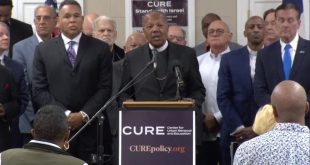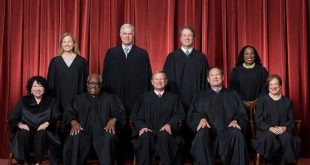The U.S. Congress passed the American Rescue Plan Act of 2021, which created a $28.6 billion fund called the Restaurant Revitalization Fund, administered by the U.S. Small Business Administration (SBA), to help restaurants impacted by the COVID-19 pandemic.
For the first 21 days, the fund prioritized grants to businesses owned by women, minorities, and veterans before dispensing money to owners outside these classifications. A group of restaurant owners filed a lawsuit against the government for discrimination. Although eligible for relief, they didn’t apply. The SBA stated that it would “accept applications from all eligible applicants, but only process and fund priority group applications.”
White, male, and non-veteran restaurant owners naturally were concerned that the fund would dry up before they had a chance to receive help. A district court granted the plaintiffs’ request for a temporary restraining order. The court contended that the government failed to prove a compelling interest in “remedying past discrimination in the restaurant industry,” the plaintiffs were likely to succeed on the merits, and they would “suffer irreparable harm absent a TRO.”
Now plaintiffs in a different case prevailed against the government over discrimination in the Restaurant Revitalization Fund. The Wisconsin Institute for Law and Liberty, which represents the plaintiffs, made the announcement. A three-judge panel of U.S. Court of Appeals for the Sixth Circuit ruled 2-1 that the government can’t allocate taxpayers’ money based on race and sex. The court ordered the government to stop using these factors when processing an application for plaintiff Antonio Vitolo.
Vitolo co-owns a restaurant with his Hispanic wife, but he was not eligible for the fund because he’s white. The SBA didn’t process his application until all minority and female applicants were fulfilled. Like other plaintiffs, he was concerned the fund would run out of money.
The court said that the plaintiffs (Vitolo personally and the restaurant) “continue to suffer a real and concrete injury by having their application considered behind the priority applications because of race and sex.” The government didn’t satisfy the “compelling interest” requirement in remedying some specific episode of past discrimination. Even if the government had satisfied this requirement, the court said, the race- and sex-based priority was not narrowly tailored to further that interest.
 CURE News and Clergy Blog News and Commentary for Christians
CURE News and Clergy Blog News and Commentary for Christians



